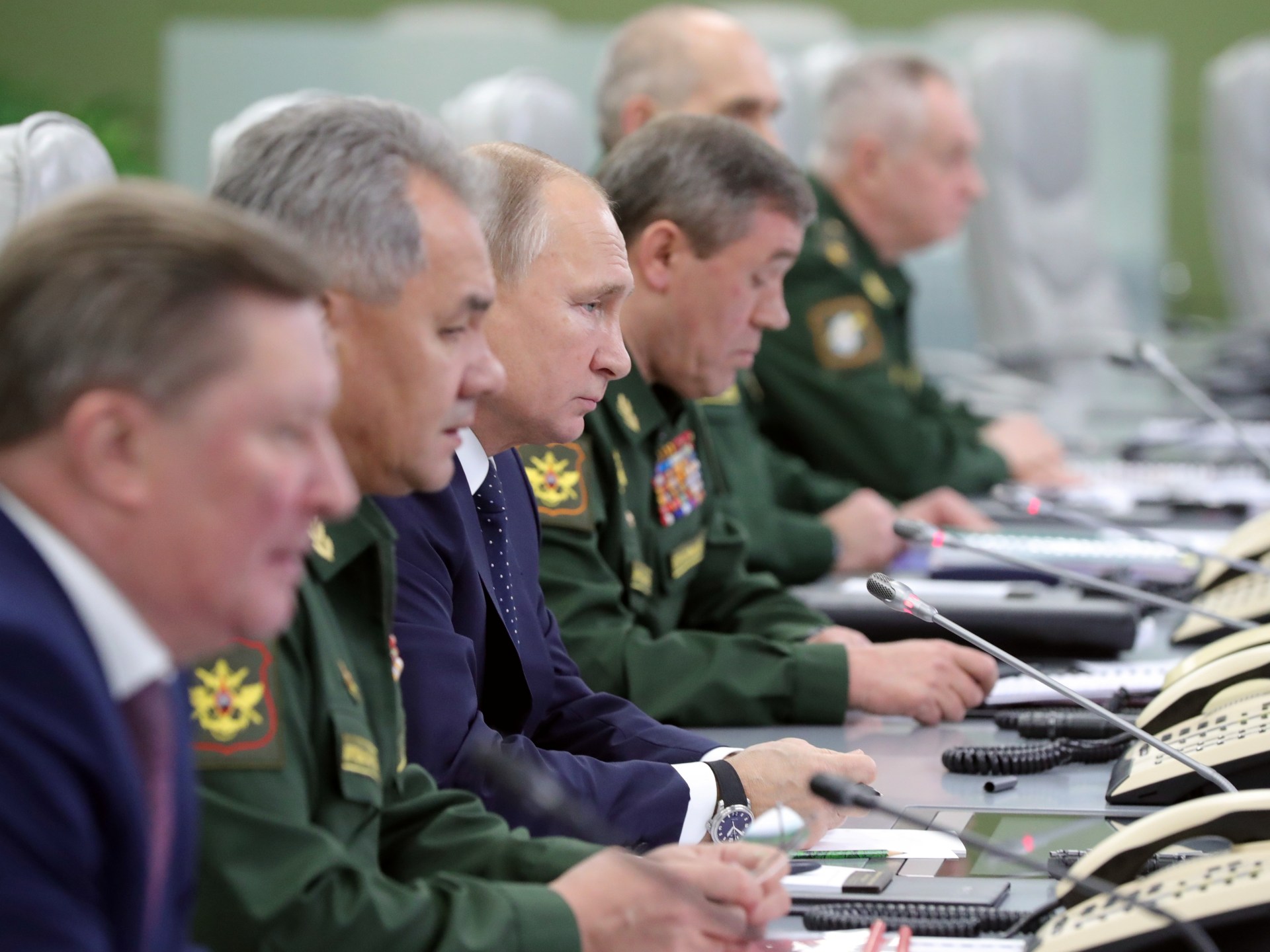The American magazine "Foreign Affairs"
published an article
by two American researchers claiming that the attack launched by the Ukrainian army on the city of Kharkiv in September proved the extent of the mistake made by Russian President Vladimir Putin by invading his eastern neighbor.
According to Andrea Kendall Taylor, director of the Transatlantic Security Program at the Center for a New American Security, and fellow center Michael Kaufman, Ukraine delivered a decisive blow, taking the lead from Russian forces and losing momentum and enthusiasm.
They are low in morale
The successes of the Ukrainians on the battlefield revealed the weakness of the Russian army with low morale, lack of manpower, and deteriorating quality of soldiers.
Instead of raising the white flag, Putin dealt with these problems by ordering a partial military mobilization, imposing tougher penalties on soldiers who deserted or surrendered on the battlefields, and proceeded to "illegally" annex four Ukrainian regions.
With Russia's declining fortunes in Ukraine, as he did about its diminishing role in the international arena, Putin doubled down on his risky bet.
Putin's apparent astonishment shows - in the opinion of the authors of the article - that the war in Ukraine pushed his country toward its decline.
Reducing Russian influence in Europe
Meanwhile, Europe is moving to reduce its energy dependence on Russia, which will reduce its influence on the continent and reduce the revenues of its government, which is highly dependent on energy exports.
The researchers believe that unprecedented international sanctions and export controls limit Russia's access to capital and technology, which will lead to Moscow's decline further in innovation.
Whenever Russia feels vulnerable, according to the article, it tries to compensate for its weaknesses by relying on unconventional tools, including nuclear weapons, just as it does in Ukraine and elsewhere.
Russia's threat may not recede
In other words, Russia's power and influence may diminish, but this does not mean that the threat posed by Russia will be significantly reduced, but rather that some aspects of it are likely to be exacerbated.
Even if Putin loses the war, the problem that Russia has created will not be solved, but will only make matters worse in many respects.
The war in Ukraine has dealt a blow to Russia's global economic clout, with its gross domestic product expected to shrink by 6% this year, according to the International Monetary Fund.
Perhaps this is just the beginning, as Russia has not yet felt the brunt of Western actions.
Suffering of some Russian industries
Western export controls will limit Moscow's access to key technologies and components, hampering an economy that relies heavily on foreign inputs and knowledge.
There are already signs of suffering facing the auto industry and other key commercial sectors, in which Russia's dependence on foreign components or parts is particularly evident.
Moreover, Russia's status as a major energy power is "unstable", and Europe certainly faces challenges in securing alternatives to Russian energy imports in the next decade.
But in the long run, the political leverage that the Kremlin derives from energy exports will diminish.
Western sanctions - which are scheduled to enter into force by the end of 2022 - will prevent the issuance of commercial insurance for shipments of Russian tankers, which increases the risks and costs of Russian oil transactions.
Meanwhile, the Group of Seven is imposing a ceiling on the selling price of Russian oil.
Over time, Russia may tighten the noose around and be forced to offer deeper discounts on its oil prices.
There is increasing evidence that Russian exports are declining, and thus revenues, that have prompted the government to cut its budget in many departments by 10%.
Brain drain and talented people
Europe will steadily reduce its imports of Russian energy, so Moscow will not have much room to negotiate with other consumers, such as China and India.
Russia is suffering from the exodus of its best talent, such as programmers, engineers and IT specialists, which will limit its competitiveness in the future.
In their article, the two researchers go on to point out that the Russian economy is heading towards scarcity, aloofness, and continuous detachment from the global economy.
As the situation deteriorates, the Kremlin will become increasingly despondent, resorting to vague or illegal means to bypass the rules governing global trade in which it no longer has an interest, and the more it is marginalized and threatened, the less predictable and controlling its behavior will be.
It is difficult to predict Putin's successor
The authors argue that Putin's grip on power in Russia appears weaker than ever, so that it is difficult to predict who will succeed him in power.
Some analysts have warned that Russia's next leader could be worse for the West.
Although Taylor and his colleague Kaufman do not completely rule out this scenario, they believe - in their article in Foreign Affairs - that the probability of its occurrence may be less than what many expect.

